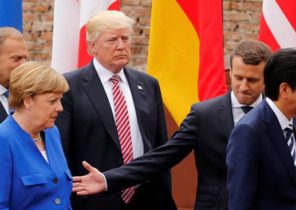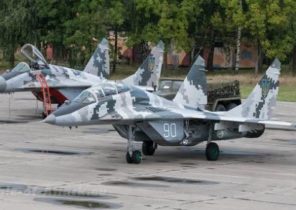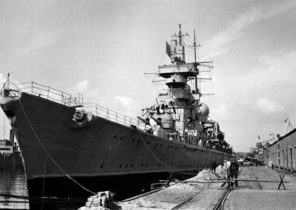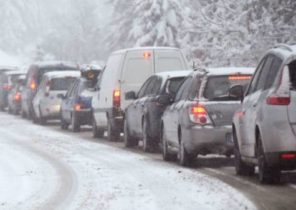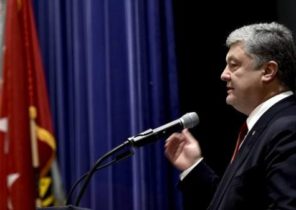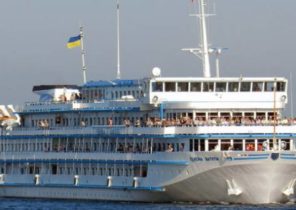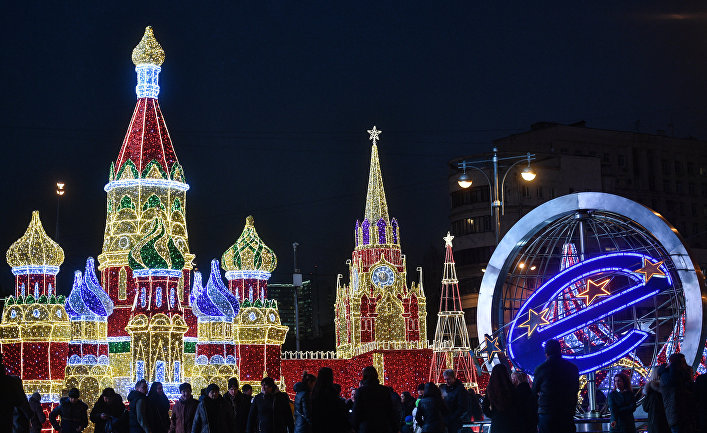
The status of Vladimir Putin has changed a lot since 2014, when he was treated like a pariah. Europe can no longer ignore it… but, of course, should not and to obey him.
Forewarned is forearmed: 2017 will be the year of Russia. More specifically, in 2017, Russia will try to finally move from the status uncontrolled outsider to the status of global powers in international relations. This will contribute to a few Windows of opportunity and a supportive rhythm. For the European Union the year of Russia will be associated with many risks, but he will have also a number of handy points that will need to quickly use it.
By the end of 2016, of course, favored by Vladimir Putin. On 23 December the President of Russia noted the achievements made during the year 2016 on the traditional final press conference. It entered the international scale of the event was to be the culmination of the geopolitical. The Russian leader has presented himself it the world’s main fighter against Islamic terrorism, a key figure in the middle East and the leader of the “anti-systemic” movements. Paradoxically, the murder of the Russian Ambassador to Turkey, a terrorist attack in Istanbul and sanctions President Obama against Russian intelligence could not overshadow all of these topics. Tragically, they only said that Vladimir Putin is the leader incomplete and the caller fears and controversy world power.
In 2016 at hand the strategy of Russia’s return played a number of “surprises”: the rise in oil prices after OPEC decision to reduce output, the election of Donald trump with the prospect of improving bilateral relations, the rise of Pro-Russian rhetoric in election campaigns in Europe. This year the President of Russia has turned in their favor a number of risky situations. He thereby laid the Foundation for future elections, the most significant of which will be his own re-election in the fall of 2017. Europeans also remains helplessly watch the unstoppable return of Russia to the detriment of their own interests?
On the way to Russian Syria?
In Syria, a military victory in Aleppo became the political, tactical and strategic breakthrough, to which Russia committed in the region from September 2015. 15 months after the application for intervention at the UN Moscow achieved the main objectives in the country. She organized a kind of antithesis of the war in Iraq and anchored far from its borders.
A series of impressive successes. Russia put on the feet of the Assad regime which is its ally since 1970. Now the negotiations about the political future of the country will go under the scenario of Moscow, or at least proposed to her foundations. In the middle East, the Alliance of Russia and Iran became the dominant center of gravity. Turkey moved closer to the positions of Moscow and changed the Alliance is not without risk for the Erdogan government: the electorate might be unhappy that they went for a deal with the Shiites and lowered the shield to Iran. The Sunni monarchies of the Persian Gulf took a defensive position: they have no confidence in the Alliance with the United States, and they themselves are suspected of having links with radical Islamism. In addition, Russian weapons (missiles “Caliber”, the bombers su-24M) is widely reported in the media, which helped to strengthen the market position of Moscow in a new arms race in the middle East and Asia. Finally, the Russian armed forces has greatly expanded its presence on land, in air and on sea: a naval base in Tartus is developing, the base Hamim expanding, and in the Mediterranean appeared flotilla led by the aircraft carrier “Admiral Kuznetsov”. In 2016, Russia has managed to rise in rank the key powers in the middle East theatre price horrific civilian casualties and the unprecedented war effort.
In the coming months, Russia will engage a network of alliances to rebuild the region under their own interests. Europeans can no longer ignore it, because this was stated by the President of Russia: Moscow intends to rebuild the middle East in response to the American decade, taking advantage of the weakness of Turkey, while Iran even louder not declared itself. The European powers need to act quickly if they don’t want to deal with the consequences (refugees and terrorism) without the possibility to influence the causes (conflict in the middle East). Only the expansion of their military resources at the scene and a vigorous diplomatic initiative will allow to defend the interests of Europe at its borders. Europe must refuse to transfer the Turkey of its sovereignty in the issue of refugees, to insist on identification of priority goals (the militants, not the opposition forces) and stress in the security Council failure to maintain the regime of Bashar al-Assad in a political solution to the Syrian crisis.
The international system around military force
In 2016 Russia on the facts showed the limitations of the international system, criticism of which is ten years. In the strategic doctrine, updated in December 2016, she commended the legal system of the UN, however, such declarations should not mislead: the war in Syria discredited and weakened the international community and the collective security mechanisms of the UN.
Regular use of the Russian veto in the security Council paralyzed Western initiatives and ensure the rapprochement of Russia with China. This is evident in the efforts of Moscow in the security Council: resolutions follow one another, and she intends thereby to reap the fruits of diplomatic military intervention to guide the future of the country and the region in the right direction. Russia classic changed the ratio of military forces to withdraw from the legal settlement of the conflict. Thus, it undermines the idea of achieving peace through law. Europeans need to use the security Council’s own leverage to prevent approved by the Russia, Syria and Iran balance of power with contempt for international law.
In addition, Russia flattened European organizations: the OSCE, whose task is to ensure the security of the continent relations between the West and Russia, is completely stuck. In 2016, the annexation of Crimea and a frozen conflict in Eastern Ukraine is firmly fit into the European geopolitical landscape. Minsk agreement, in turn, may not move from a dead point, including owing to the inaction of the government Poroshenko. Russia even managed to overshadow the rise of NATO, which was confirmed at the July summit in Warsaw. In 2016, the prophecy of the President of Russia was fulfilled: the system of collective security and dispute resolution in the legal field proved to be powerless in the face of new threats and unilateral approach of Moscow.
The Europeans can’t ignore it: in 2017 Russia will continue to increase their advantage relative to multilateral organizations due to the election of Donald trump and election campaigns in Europe. So they need to act in the UN and the OSCE, to remind us of the strict principles of international law. Only the unchanging fidelity to the principles of a political settlement of differences can push Russia to a less aggressive position.
To end the fight Russophiles and Russophobes
In 2016, Russia has managed to change its status in the European political arena, despite the sanctions. Consider your journey in 2014, when the Russian leader was considered the pariah of the European community. Two years later, Russia is increasingly seen as the only country that effectively fights against Islamic terrorism and defends the Christian identity of Europe. Such an image success was the result of a long-term strategy of “soft power” and a long information war.
The President of Russia has become a unifying factor for many of the European parties and leaders to the detriment of solidarity within Europe. “Anti-system” leaders speak openly about the proximity to Vladimir Putin in many States in Central Europe, except Poland, a populist and authoritarian parties that are in power (Hungary, Slovakia, Bulgaria) or intend to come to her (Austria) are in favour of strengthening ties with Russia. Pro-Russian statements even in Germany anti-immigration movements that are series of terrorist attacks carried out in the country. Throughout Europe declarations of rapprochement with Russia have become symbols of personal power and euroskeptic patriotism.
In the EU, the President of Russia has completed the year 2016 radical change of the situation: as if in response to sanctions, he sharpened the differences between supporters of Europe and eurosceptic populists. In 2017 Russia will continue work on the split of Europe in connection with the negotiations on Brexia. She will use levers “anti-system” parties and governments to achieve the lifting of sanctions.
Europeans need to avoid these pitfalls. On January 31 they have to make a decision on the extension of sanctions. In addition, in several key States start of the election campaign, the center of which will stand the Russian question. Too quickly to remove sanctions is not: power is extremely important if you want Russia to listen to you. Should not discuss Russia in the debate on the future of Europe: Russophilia or Russophobia is irrelevant, when all our forces should be focused on issues of terrorism, refugees and unemployment. Moreover, the Europeans need to take advantage of the campaign, which will begin Vladimir Putin in 2017 if he wants the lifting of sanctions to the beginning of the next mandate, he will have to make concessions to Europe.
Putin — a member of the French elections?
In France the President of Russia became a full participant in the national discussion of political issues. Moreover, we can say that he even became a French politician because of the excess of hatred of some, and boundless admiration of others in our political sphere.
Achieved impressive. In 2016, the President of Russia managed to attract part of the public, which was shocked by his brutality in the Caucasus, in Ukraine and in Syria. He patiently change its image. Gathers the supporters of a strong presidential power. A non-binding resolution of the National Assembly and the Senate talking about the fact that many parliamentarians were in favour of rapprochement with Russia. The two main candidates for the presidency, françois Fillon and marine Le Pen, has openly been campaigning for closer ties with Russia, which also became a symbolic victory. In 2016, Vladimir Putin has managed to become a full-fledged French political force. Many voices in France are repeating the classic theme of the Russian leader: the defense of Christianity, the fight against Islamic totalitarianism and the decline of traditional values.
In 2017 Putinism may enter into fashion in France. But our politicians should not make Putin a candidate for election. The benefits from this are not too large: for a small price, they get the image of strong leaders. However, the proposed Kremlin political model — is poorer and less suited to Europe than we often think. Putinism is a mixture of opportunism, social conservatism, political authoritarianism, and geopolitical adventurism and economic incompetence. It may not be a consistent policy because it is constantly rearranging the system of government. French politicians is waiting for a contempt of the Kremlin, if they unconditionally support its position.
Europeans warned. In 2017 to Russia offers a multitude of possibilities: the rise in oil prices, the change of opinion about sanctions of the Western public, the change of government in the United States, France and Germany, the military victory in Syria. Anyway, Moscow susceptible to pressure from the West in autumn, President Putin will seek to win the election. And for that he needs Europe. The lifting of sanctions, the signing of a political agreement on Syria, a pragmatic course NATO, reforms in Ukraine, etc. In all these matters the Russian leader needs the Europeans. They should realize their power in relations with Moscow. And to use these levers to 2017 was the year not only in Russia.

